Malaysian cinema, a vibrant blend of culture, tradition, and modernity, provides a captivating look into Malaysia’s diverse and dynamic society.
Despite being less known in the global film community, it has quietly carved out a distinct identity, showcasing a variety of narratives that reflect Malaysia’s multiethnic and multicultural reality.
Dating back to the 1930s, the evolution of Malaysian cinema has paralleled the nation’s own journey of development and modernization.
From its humble beginnings in colonial-era Singapore to the birth of modern Malaysian film following the nation’s independence in 1957, the industry has experienced a series of transformations that have shaped its unique cinematic landscape.
Malaysian cinema embodies a fusion of styles and genres, reflecting the country’s blend of Malay, Chinese, Indian, and indigenous cultures.
Films range from commercially oriented action films, comedies, and horror flicks, to independent productions that offer poignant social commentary and delve into political and cultural issues.
Best Malaysian Movies
The following list presents some of the best films in Malaysian cinema. Each film, in its unique way, captures the essence of Malaysia, providing insights into its society, history, and culture.
From mainstream hits to independent gems, these films demonstrate the creative vitality and storytelling power of Malaysian cinema, offering viewers a cinematic journey into the heart of Malaysia.
1. Hang Tuah (1956)
“Hang Tuah” is a 1956 Malaysian film directed by Phani Majumdar and featuring P. Ramlee in the lead role. The film is based on the legendary Malay hero Hang Tuah, who is renowned for his loyalty, bravery, and martial arts skills.
The story of “Hang Tuah” is set during the Malacca Sultanate in the 15th century. It follows the adventures and exploits of Hang Tuah and his four close friends, known as the Five Warriors (Pendekar Lima).
https://www.youtube.com/watch?v=ztdNvAnnFVM&pp=ygUYSGFuZyBUdWFoICgxOTU2KSB0cmFsaWVy
Together, they protect the kingdom and its ruler, Sultan Mansur Shah, from internal and external threats.
The film showcases Hang Tuah’s unwavering loyalty to his king, his skills in combat, and his deep sense of honor and justice. It also touches upon themes of friendship, duty, and the struggle between good and evil.
“Hang Tuah” is celebrated for its engaging storytelling, vibrant visuals, and memorable performances. It became a classic of Malaysian cinema and contributed to the popularization of the Hang Tuah legend in the country.
Please note that availability of “Hang Tuah” may vary depending on your location and the sources you have access to, as it is an older film.
- unknown author (Author)
- 01/01/1938 (Publication Date) - Malaya Publishing House (Publisher)
2. The Big Durian (2003)
“The Big Durian” is a 2003 documentary film directed by Amir Muhammad. The film takes its title from the nickname of Jakarta, the capital city of Indonesia, which is known for its bustling urban environment and its diverse social and cultural landscape.
“The Big Durian” examines a tragic event that occurred in Jakarta in 1998. The film revolves around the mysterious death of the country’s vice president, Jusuf Habibie, and the subsequent riots that engulfed the city.
Through interviews, archival footage, and reenactments, the film investigates the events leading up to the riots and provides insights into the political and social climate of the time.
The documentary offers a multi-perspective exploration of the incident, featuring interviews with various individuals including artists, activists, politicians, and ordinary citizens.
It delves into themes of corruption, power struggles, censorship, and the impact of political upheaval on people’s lives.
For more about Malaysia cinema, you can check out our overview of the best films from Malaysia and our country-by-country exploration of global cinema.
“The Big Durian” is known for its unconventional and provocative approach to storytelling, employing a mix of documentary techniques and fictional elements to convey its narrative. It challenges conventional notions of truth and blurs the boundaries between fact and fiction.
The film received critical acclaim for its bold and thought-provoking examination of Indonesian society and politics. It sparked discussions about the country’s history, social dynamics, and the complex relationship between the government and its citizens.
Amir Muhammad’s “The Big Durian” is considered a significant contribution to documentary filmmaking in Southeast Asia, shedding light on a pivotal moment in Indonesian history and inviting viewers to reflect on the broader implications of the events it portrays.
- Amazon Prime Video (Video on Demand)
- Amir Muhammad, Ghafir Akbar, Soh Boon Tat (Actors)
- Michael Landers (Director) - Rachel Astarte Piccione (Writer) - James Lee (Producer)
- (Playback Language)
3. Sepet (2004)
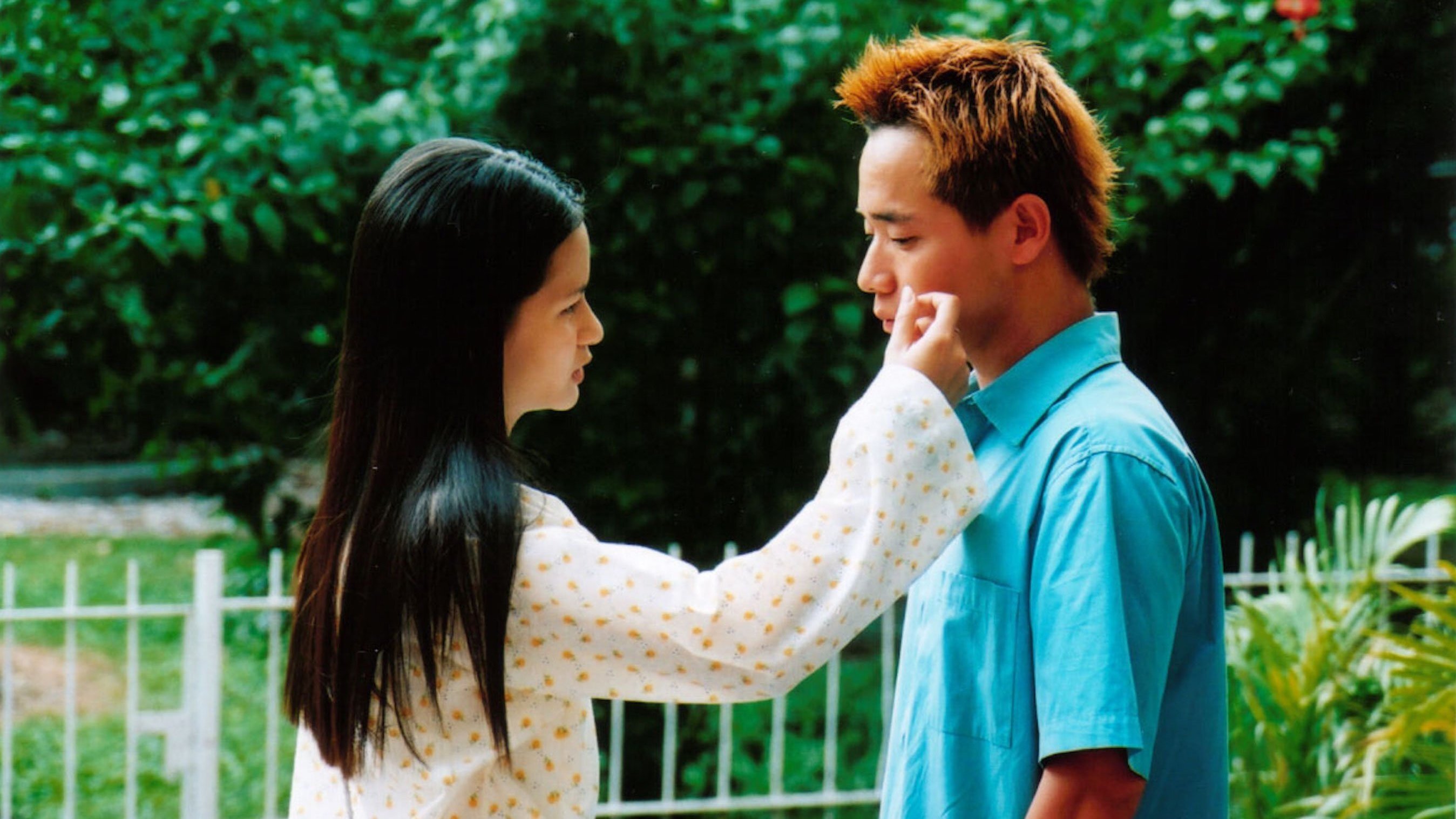
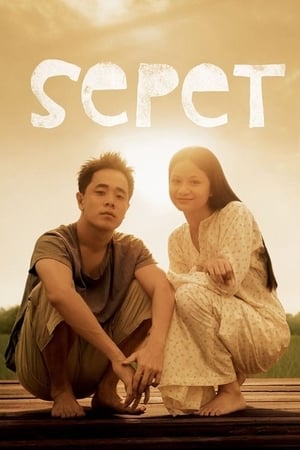
Sepet
One Chinese Boy, One Malay Girl, One Unforgettable Love Story.
2004 • 1h 44min • ★ 6.8/10 • Malaysia
Directed by: Yasmin Ahmad
Cast: Choo Seong Ng, Sharifah Amani, Linus Chung, Mei Ling Tan, Thor Kah Hoong
19-year old Ah Loong is in charge of a street stall selling pirated VCDs. Ah Loong is an incurable romantic with a unique hobby – he loves to read and write poetry. Quite content to carry on being the Romeo of the slums, Ah Loong's life takes on a sudden change one day when a 16-year old Malay schoolgirl arrives at his stall in search of Wong Kar-Wai films.
“Sepet” is a 2004 Malaysian romantic comedy-drama film directed by Yasmin Ahmad. The film explores the themes of interracial relationships, cultural identity, and societal prejudices in contemporary Malaysia.
“Sepet” tells the story of Orked (played by Sharifah Amani), a Malay schoolgirl, and Jason (played by Choo Seong Ng), a Chinese-Malaysian boy who works as a pirate DVD seller.
Despite their cultural differences and the disapproval of their respective communities, Orked and Jason form a bond and develop a relationship.
The film delves into the complexities of their interracial romance and examines the challenges they face due to cultural, religious, and social barriers. It addresses issues such as racial stereotypes, discrimination, and the clash between tradition and modernity.
“Sepet” offers a nuanced portrayal of Malaysia’s multicultural society, depicting the diverse backgrounds, languages, and beliefs of its characters. It highlights the importance of understanding and empathy in bridging cultural divides and challenging societal expectations.
Yasmin Ahmad’s direction blends humor and heartfelt moments, providing a balance between light-hearted moments and thought-provoking commentary.
The film also explores themes of family dynamics, personal aspirations, and the universal struggles of adolescence and coming of age.
“Sepet” received critical acclaim for its sensitive portrayal of interracial relationships and its exploration of cultural identity. It won several awards at international film festivals and garnered praise for its engaging storytelling and well-drawn characters.
The film is celebrated for its sincere and compassionate approach to addressing social issues and its ability to resonate with audiences beyond the Malaysian context.
It remains an important work in Malaysian cinema, capturing the complexities of multiculturalism and offering insights into the human experience in a diverse society.
4. Puteri Gunung Ledang (2004)
“Puteri Gunung Ledang” is a 2004 Malaysian epic fantasy film directed by Saw Teong Hin. It is based on the legendary Malay folklore of the same name, which tells the story of a mystical princess from Mount Ledang.
The film is set during the 15th century in the Malacca Sultanate, and it revolves around the forbidden love between Hang Tuah, a legendary Malay warrior, and the Princess of Mount Ledang.
The princess presents Hang Tuah with a series of impossible tasks as conditions for their marriage, testing his loyalty and devotion.
“Puteri Gunung Ledang” combines elements of romance, fantasy, and historical drama, showcasing the rich cultural heritage of Malaysia. It features elaborate costumes, intricate set designs, and traditional music, creating a visually stunning and immersive cinematic experience.
The film received critical acclaim for its production values, cinematography, and performances. It became one of the highest-grossing films in Malaysian cinema history and played a significant role in raising the profile of the country’s film industry on the international stage.
“Puteri Gunung Ledang” showcases the enduring appeal of Malaysian folklore and folklore-inspired storytelling, while also highlighting the cultural heritage and traditions of the region.
The film has become a beloved and iconic work within Malaysian cinema, contributing to the preservation and promotion of local legends and mythology.
No products found.
5. The Red Kebaya (2006)
“The Red Kebaya” released in 2006. It’s possible that the film may be less well-known or not widely documented.
It’s also worth noting that my training data only goes up until September 2021, so there may have been more recent developments or information about this film that I’m unaware of.
https://www.youtube.com/watch?v=CIVX4FYRu7k&pp=ygUdVGhlIFJlZCBLZWJheWEgKDIwMDYpIHRyYWxpZXI%3D
If you have any additional details or context about the film, I can try to assist you further.
6. Flower in the Pocket (2007)
“Flower in the Pocket” is a Malaysian film directed by Liew Seng Tat. It was released in 2007 and is a poignant drama that explores themes of family, loneliness, and the search for connection.
The story revolves around two young brothers, Li Ah and Li Ohm, played by Lim Ming Wei and Wong Zi Jiang respectively.
The brothers live with their neglectful father and face a lack of attention and care in their daily lives. They navigate their world with childlike innocence and curiosity, finding solace and joy in simple things.
“Flower in the Pocket” captures the struggles and resilience of the young brothers as they forge a bond with each other and seek meaning and companionship in their challenging circumstances.
The film explores the themes of childhood innocence, the importance of human connection, and the impact of neglect on a child’s development.
Liew Seng Tat’s direction in “Flower in the Pocket” is known for its delicate and observant storytelling. The film combines moments of humor, tenderness, and pathos, offering a compassionate exploration of the lives of the two brothers.
The film received critical acclaim for its authentic portrayal of childhood and its ability to evoke empathy and reflection in viewers.
“Flower in the Pocket” is celebrated for its intimate storytelling, natural performances, and its ability to highlight the resilience and emotional depth of children.
It is worth noting that “Flower in the Pocket” is considered an important contribution to Malaysian cinema, showcasing the talent and creativity of the country’s filmmakers and telling a heartfelt story that resonates with audiences.
- Flower in the Pocket ( Louloudi stin tsepi )
- Flower in the Pocket
- Louloudi stin tsepi
- Zi Jiang Wong, Ming Wei Lim, James Lee (Actors)
- Liew Seng Tat (Director) - Flower in the Pocket ( Louloudi stin tsepi ) (Producer)
7. Jarum Halus (2008)
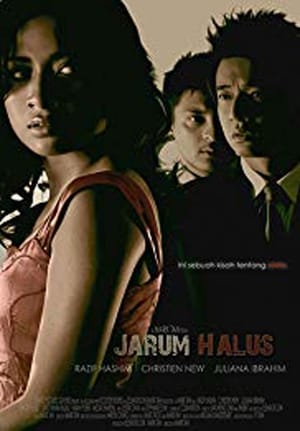
Fine Needle
2008 • 2h 13min • Malaysia
Directed by: Mark Tan
Cast: Christien New, Juliana Ibrahim, Razif Hashim, Rahim Razali, Justin Chan
It is a modern-day adaptation of William Shakespeare's Othello. The film’s title (Malay: "Fine Needle") is derived from a Malay idiom meaning web of deceit or conspiracy, which is a major theme in the plot of the film. The plot remains faithful to the source material, with the cast all taking their Shakespearian counterparts either in name, character or both.
“Jarum Halus” released in 2008. It’s possible that the title might be different or less well-known.
If there are any other details you can provide or if you think there might be any alternative title, please let me know, and I’ll do my best to assist you.
8. Petaling Street Warriors (2011)
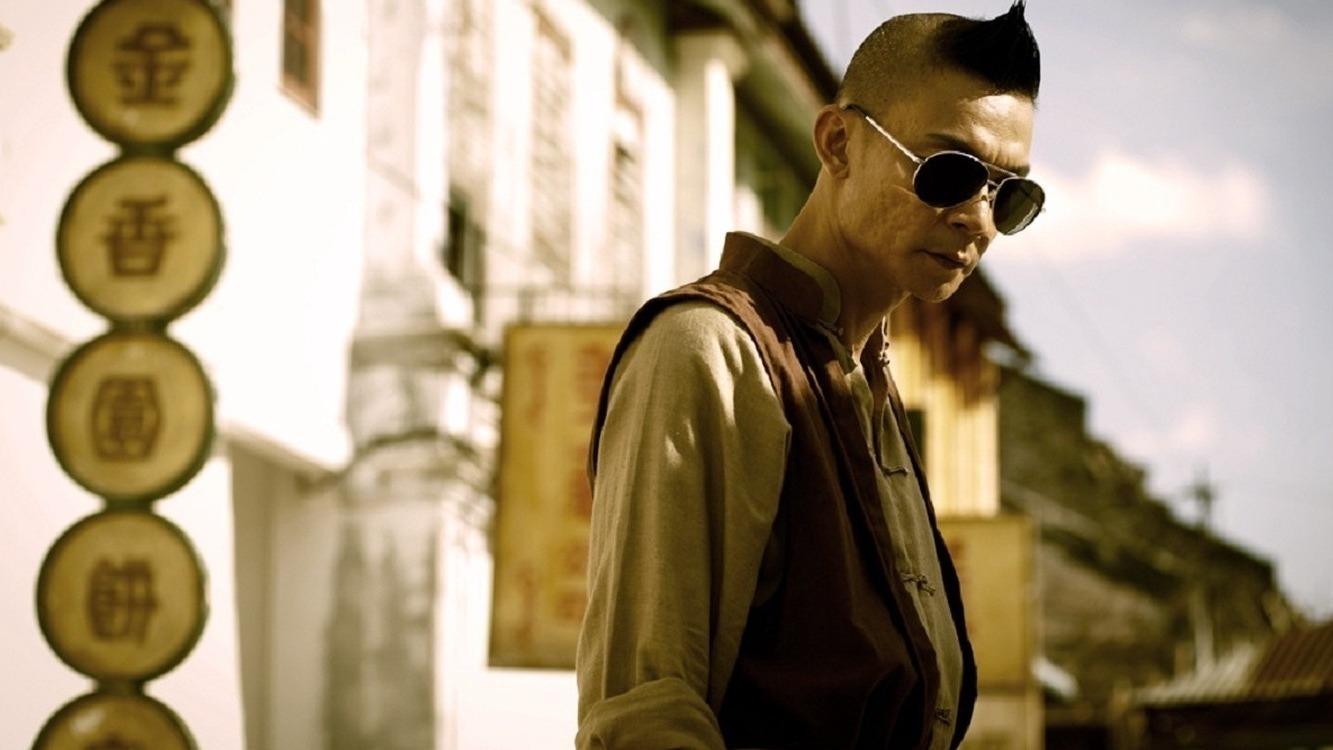
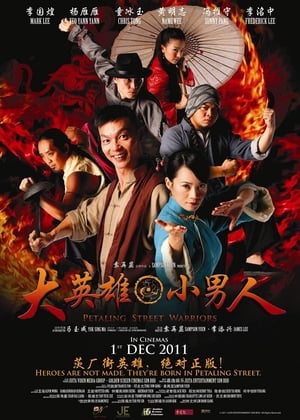
Petaling Street Warriors
2011 • 1h 46min • ★ 5.5/10 • Malaysia
Directed by: Sampson Yuen
Cast: Mark Lee, Yeo Yann Yann, John Cheng, Namewee, Chris Tong
Set in Petaling Street in 1908, it tells of a hokkien mee seller (Mark Lee) who finds himself entangled in deadly battles with skilled fighters. Little did he know that he is in possession of a lost treasure map linked to the Qing Dynasty and must refrain himself from consummating his marriage to master the "Virgin Kung Fu" skills to overcome his opponents
“Petaling Street Warriors” is a 2011 Malaysian action-comedy film directed by Sampson Yuen and James Lee.
The film combines elements of martial arts, comedy, and historical fiction, creating an entertaining and action-packed adventure set in the vibrant backdrop of Petaling Street, Kuala Lumpur’s Chinatown.
The story revolves around a group of hawkers and street vendors who find themselves caught in the midst of a plot to overthrow the British colonial government.
Led by their charismatic leader, the “Petaling Street Warriors” must use their unique skills and resourcefulness to protect their community and fight against the oppressive regime.
“Petaling Street Warriors” blends comedy and action, featuring exaggerated fight sequences, humorous situations, and a colorful cast of characters.
It offers a fresh and light-hearted take on Malaysian history, incorporating elements of local culture, traditions, and folklore.
The film received positive reviews for its energetic performances, well-choreographed action sequences, and its ability to blend humor with historical storytelling. It pays homage to the rich heritage of Petaling Street and the spirit of unity and resilience within the community.
Please note that the availability of “Petaling Street Warriors” may vary depending on your location and the sources you have access to.
9. Bunohan (2012)
“Bunohan” is a 2012 Malaysian film directed by Dain Iskandar Said. It is a gritty and atmospheric action drama that delves into themes of family, betrayal, and redemption set in a small village near the Thai-Malaysian border.
The film follows the story of three estranged brothers: Adil, Ilham, and Bakar. Adil (played by Zahiril Adzim) is a professional Muay Thai fighter who has fallen into debt and is pursued by a powerful gangster.
Ilham (played by Faizal Hussein) is a skilled assassin who returns to the village after years of absence.
Bakar (played by Pekin Ibrahim) is a troubled individual struggling with personal demons. Their paths converge when circumstances force them to confront their past and make difficult choices.
“Bunohan” combines elements of action, drama, and crime thriller to create a compelling narrative. The film explores the moral complexities of its characters and examines the impact of their choices on themselves and those around them.
Set against the backdrop of a rugged and visually striking village, “Bunohan” portrays the beauty of the natural landscape and the harsh realities of life in a remote community.
It incorporates elements of Malaysian culture, including martial arts and traditional rituals, which add depth and authenticity to the storytelling.
The film received critical acclaim for its strong performances, evocative cinematography, and its exploration of complex emotions and human relationships.
“Bunohan” showcases Dain Iskandar Said’s distinct directorial style and his ability to craft compelling narratives that resonate with audiences.
“Bunohan” stands as an important contribution to Malaysian cinema, representing a fusion of genre elements with a poignant examination of personal and societal issues.
- Amazon Prime Video (Video on Demand)
- Faizal Hussein, Zhril Adzim, Pekin Ibrahim (Actors)
- Dain Said (Director) - Dain Said (Writer) - Nandita Solomon (Producer)
- (Playback Language)
10. The Journey (2014)
“The Journey” is a 2014 Malaysian drama-comedy film directed by Chiu Keng Guan. It revolves around a cross-cultural road trip that brings together two characters from different ethnic backgrounds, highlighting the theme of unity in a diverse society.
The story follows a conservative Malay-Muslim girl named Bee (played by Jojo Goh) who finds herself stranded at a bus station.
She reluctantly accepts a ride from a Chinese-Malaysian bus driver named Bakar (played by Ben Pfeiffer), who is on a mission to reunite with his estranged wife.
During their journey, Bee and Bakar encounter various challenges and cultural differences. As they travel together, they learn to put aside their prejudices and develop a deeper understanding and appreciation for each other’s perspectives and backgrounds.
The film portrays their evolving friendship and the gradual breaking down of barriers between them.
“The Journey” explores themes of acceptance, tolerance, and the power of human connection.
It addresses cultural stereotypes and prejudices prevalent in Malaysian society, ultimately promoting the idea that unity can be achieved through understanding and empathy.
The film’s comedic and lighthearted tone, along with its engaging performances, allows the story to resonate with a wide audience. It strikes a balance between entertainment and social commentary, offering both laughter and moments of reflection.
“The Journey” was well-received by audiences and critics alike, becoming a box-office success in Malaysia. It was praised for its positive and uplifting message, its portrayal of intercultural dynamics, and its ability to touch on sensitive social issues with humor and sensitivity.
The film’s success contributed to the growing recognition of Malaysian cinema and its potential to bridge cultural gaps and promote understanding. It serves as a reminder of the importance of embracing diversity and celebrating shared humanity.
- Amazon Prime Video (Video on Demand)
- Colm Meaney, Timothy Spall, Toby Stephens (Actors)
- Nick Hamm (Director) - Colin Bateman (Writer) - Nick Hamm (Producer)
- English (Playback Language)
- English (Subtitle)








![Flower in the Pocket ( Louloudi stin tsepi ) [ NON-USA FORMAT, PAL, Reg.2 Import - Netherlands ]](https://m.media-amazon.com/images/I/61dvZ72iG+L.jpg)



